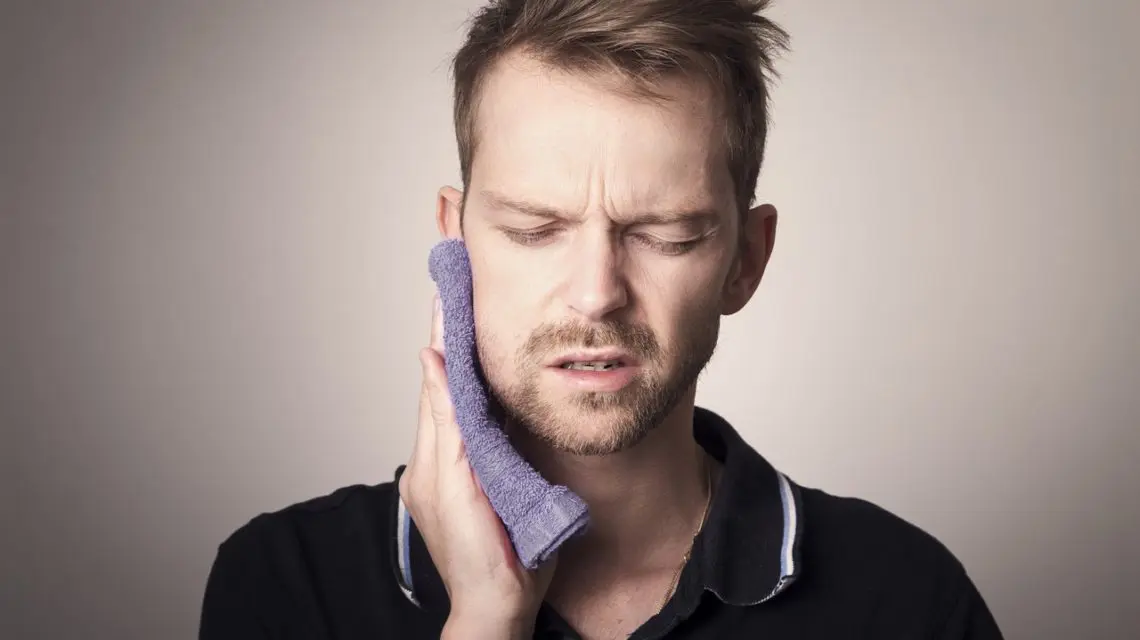While most people understand how their teeth and gums work, they might know less about the bones that construct their mouths. For instance, did you know that issues with your jaw can cause problems for the rest of your mouth? TMJ disorder is one of the most common jaw issues we see here at Country Club Dental. Let’s talk about this condition and why you may be experiencing TMJ tooth pain.
What is TMJ disorder?
The temporomandibular joint (TMJ) of the mouth is located on either side of your head, just in front of the ears. This joint acts like a hinge that connects your lower jawbone to your skull and is cushioned by the cartilage and muscle that surround it. Every time you open your mouth to speak, breathe, eat, or yawn, the TMJ makes these acts possible.
TMJ disorder occurs when something happens to negatively impact the TMJ of the mouth. For example, aging often negatively affects the temporomandibular joint. Arthritis and other joint diseases can cause the cushioning cartilage to break down, leading to joint pain whenever you open or close your jaw. A fall or other type of impact can also damage the TMJ, causing a break or dislocation. Or, if you grind or clench your teeth due to stress, the muscles in the jaw can become irritated, and the TMJ may not work as effectively as it once did.
Between 11-12 million Americans experience pain from a TMJ disorder. And because women have estrogen receptors in their jaw, they are twice as likely to have the condition as men.
Major symptoms of TMJ disorder include:
- Pain or throbbing in the TMJ area of your jaw
- A popping or clicking sound when you open and close your jaw or are eating foods
- Inability to open your mouth all the way
- Jaw gets “locked” or stuck either open or closed
- Discomfort when chewing
- Constant headaches and/or earaches
Can TMJ cause gum and tooth pain?
Yes, TMJ disorder can cause tooth pain—here’s why. Every part of your mouth is connected through muscles, nerves, and bones. If one part of the mouth experiences pain, it will radiate to other parts of the mouth—including the teeth and gums—causing them to hurt as well.
TMJ pain often stems from a jaw misalignment. This can alter your bite pattern, causing tooth sensitivity and pain. If tooth grinding is the cause of your TMJ issues, your teeth are probably already damaged and hurting. Tooth grinding—also known as bruxism—wears down the enamel and causes loose teeth, cracks, fractures, and even tooth loss.
When teeth become misaligned, loose, or broken, this can cause TMJ gum pain. Or, if TMJ problems prevent you from opening your mouth wide enough for proper brushing and flossing, you may find yourself with irritated gums due to gum disease.
How can my dentist treat TMJ disorder?
If you are experiencing any TMJ disorder symptoms, make an appointment with your dentist. They will examine your jaw, check for any clicking or popping sounds and test how far you can open your jaw without discomfort. They might also take x-rays of your jaw and teeth to check for other issues.
If your dentist diagnoses you with TMJ disorder, your treatment will depend on the cause of the condition. Treatment options can include:
- Anti-inflammatory and pain medications, along with hot and cold packs, to help relieve discomfort in the jaw and any TMJ tooth pain or gum pain.
- Prescribed muscle relaxants to help calm inflamed areas.
- A mouth guard or oral splint to prevent you from grinding your teeth.
- Jaw stretching exercises help loosen up the jaw.
- Deep breathing and relaxation exercises to help alleviate stress-related teeth grinding.
Treating TMJ Tooth Pain in Flagstaff
Tooth and gum pain can impact your entire body. When your mouth hurts, the last thing you want to do is eat or drink, which makes it hard for your body to get the nutrients and hydration it needs. Mouth pain also makes it hard to sleep, work, and enjoy life. Although TMJ issues only affect one small part of your mouth, it has a tremendous impact on the rest of your mouth and your overall health.
If you suspect you may have TMJ tooth pain or TMJ gum pain, it’s important to get to the dentist as soon as possible to get the relief you need. Call Country Club Dental in Flagstaff today at 928-526-4314.
Images used under creative commons license – commercial use (2/22/22). Photo courtesy Sammy-Sander on Pixabay


